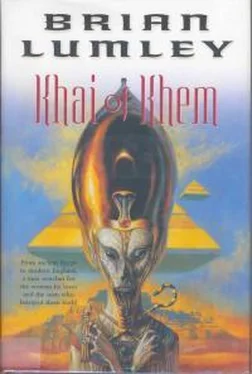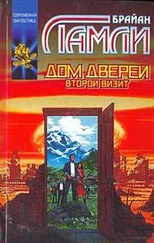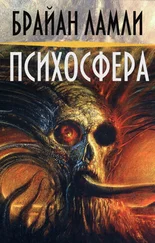The first companies of Manek’s army were just beginning to arrive and take up their old positions as Khai’s chariot turned in toward Asorbes and sped directly for the slave city. The south gate was open and Khemish soldiers were hurrying out into the pastures beneath the walls. They had withdrawn when Manek took his army away, but now that he was returning they were preparing to defend the city as before. They saw Khai coming and many of them stopped to watch him, possibly in astonishment. Whoever he was, he was either a very brave man or utterly insane; for on he came, unswervingly toward the looming walls, as if he intended to take on the whole city single-handed.
A few moments more and Khai was within bowshot of those soldiers outside the gate, and still he came on. The Khemites began to shoot their arrows at him, but uselessly for the chariot was still a very small and awkward target. Then, close to the walls of the city, less than one hundred yards from Asorbes itself, Khai ordered the chariot turned and made his run parallel with the wall and in a westerly direction. As arrows began to fall about the thundering vehicle, he jammed himself firmly in position behind his driver and loosed his three arrows over the wall. He used his finest, most powerful bow and sped each shaft with every ounce of strength he could bring to bear; and all three were in the air together, flying up and over the wall and into Asorbes.
Many enemy arrows were falling now, singing as they buried themselves in earth or feathered the wooden car of the chariot. Khai held up a shield overhead, protecting himself and his driver, then ordered the man to make for Manek’s lines. Moments later, they were out of range of the Khemish defenders and a few more minutes took them to where Manek was setting up his command tent. Khai told Manek his plan: how with the dawn they would take the city, and what must be done before then. He wasted few words but nevertheless left no detail to chance. When he was done, Manek immediately called his chiefs together around a fire, passing on Khai’s instructions and issuing orders. Teams of men would work late this night.
Then Khai drove north to Gahad Shebbithon’s camp where he repeated his instructions; and finally he hurried back to his own warriors where they camped on the northern approaches to the city. From there he sent his two Nubian lieutenants and a small body of men across the river to talk to N’jakka. By morning, having crossed the river during the night, two of N’jakka’s impis would be camped on the west bank, ready to tackle any Khemites who might choose to flee Asorbes by the east gate. This would be the only gate Ashtarta’s forces would not attack—but certainly it would be defended. Pharaoh might waste as many as one sixth of his forces defending that gate, which should make the going easier at the breaking of the other three.
By the time all was done, night had fallen and so Khai retired to his tent. There he sat for a while and drank red wine before lying himself down and trying to rest. His head was bursting, which was most unusual for he was not normally given to headaches. Before falling asleep the pains in his head lifted and it seemed to him that a small voice whispered to him, saying:
“Good, Khai, good! There has been much on your mind and your riding has wearied you. You have not been receptive. Now sleep, sleep and let the Mage of Oneiromancy specif to you in dreams. There are things you should know—things you must do. So sleep, Khai, sleep—and hearken well to your dreams this night, if you would live to dream again!”
Khai slept for several hours before he once more found himself standing beneath the stars in Kush, this time on the rim of the Gilf Kebir with all the valley of the Nile beneath him, stretching away eastward toward a dark horizon of star-strewn, indigo night. The brown mage was with him, and the Mage of Elementalism, but on this occasion his fellow generals were absent.
As soon as he had greeted the mages, Khai inquired as to the whereabouts of Manek Thotak and Gahad Shebbithon: why were they not present to hear the words of the mages.
“We have no need of their presence, Khai,” answered the Mage of Oneiromancy, “for if we were to tell them what we must tell you, it would make little difference. No, they sleep a dreamless sleep this night, and that is good, for tomorrow will be a day of great taxation. What will be will be, however, and there is no changing it.”
“Your words are ominous,” Khai answered, frowning.
“Aye, ominous—for we know that with the dawn, the Dark Heptad will send a fresh terror against you.”
Khai’s scalp prickled. “A fresh terror? What form will it take?”
The Master of Dreams shook his head; but now the spindly mage of Siwad spoke up. “I am the Mage of Elementalism, Khai, and while I am unsure as to the nature of tomorrow’s terror, I believe it will be of the elements, which are Earth, Fire, Wind and Water. One of these, but which one I cannot say.”
“Then tell me what I must do?” Khai said. “How may I avoid this elemental terror and take Asorbes?”
“You can do nothing, Khai,” answered the Mage of Elementalism, “but I can do much. This is why we have brought you here, so that we might warn you. For until I know which power the Dark Heptad will use, I can do nothing. When I do know, however, then … no man is my master in elementalism. No seven men may best me, and I shall have the combined will of my colleagues behind me.”
“Then all will be well?”
“Of this you may be certain: that whichever elemental power Pharaoh’s necromancers use, I shall bend it to my will and send it back against them—to your great benefit!”
“That’s good to know,” Khai answered; but then, sensing that there was more, he asked: “And?”
“And there is another matter,” the Master of Dreams told him. “A matter of great urgency.”
“Say on,” said Khai.
The brown mage nodded. “Very well. When you enter Asorbes, Khai, then you must find the Dark Heptad of necromancers and destroy them without delay. It must be your first priority. Their dark dabbling has brought them to the very portals of hell—portals which they would open! Indeed, they will commit the direst necromantic sin as soon as they know the slave city is doomed. Pharaoh has ordered it: universal insanity if Asorbes falls!”
Khai felt doubt gnawing at his insides. For the first time he was unsure of himself, of the seven mages. “How can you know these things?” he asked.
The mages smiled and nodded their great heads. “How can you doubt us, Khai, when you yourself have communed with the Mage of Mentalism in broad daylight?”
“The yellow mage ?”
“Aye, and he has listened to the thoughts of the Dark Heptad, which are black as the pit. Have faith, Khai, and believe. But for now, sleep. Sleep and grow strong in mind, body and faith. The dawn is not far away, and this day shall be one of the most important days that ever men have known....”
Rough hands shook him awake. He started up, gazed into the brown eyes of Kindu. “Lord, dawn will break within the half-hour,” the Nubian told him. “The eastern sky has a bright edge to it, and Asorbes is waiting. The men are being roused and the horses paw the ground. Your battering rams are ready, and N’jakka’s impis have come across the river in the night.”
“What of the Khemites?” Khai asked.
“They are ready, Lord. Their armies on the ground outside the city are half as strong again as ours, and surely many more remain within. The gates are closed and heavily defended: and the Khemites mass beneath the east wall, too, perhaps fearing an attack from N’jakka. Waugh! And they are right to fear him. He is an excitable man and Pharaoh owes him a great deal. Perhaps he will decide not to wait but simply take what he is owed!”
Читать дальше








